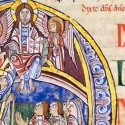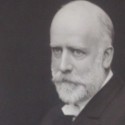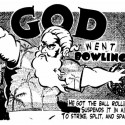Tag: Featured
-

The Voices of the Father and the Son
To interpret the Bible correctly, one of the skills you need to develop is the ability to discern the voices of God the Father and God the Son, speaking about each other and to each other, in the words of the Old Testament. Without this skill, a reader will fail to perceive many things, and will…
-

How’s Life Treatin’ Ya?
The eminent philosopher Bertram Wilberforce Wooster once wrote, I spent the afternoon musing on Life. If you come to think of it, what a queer thing Life is! So unlike anything else, don’t you know, if you see what I mean. And how right he was, don’t you know. Life is a word that presents…
-

Steward of the Infinite Riches of God’s Grace
That in the dispensation of the fullness of times he might gather together in one all things in Christ, both which are in heaven, and which are on earth; [even] in him: ~Ephesians 1:10 The “mystery” or revealed secret in this case is the Gospel, God’s purposes and plan and method of redeeming the Gentile…
-

Love: A Risky Business
The Catholic apologist and Bible translator, Ronald Knox, captured the heart of G.K. Chesterton and his importance when he observed that Chesterton “had the artist’s eye which could suddenly see in some quite familiar object a new value; he had the poet’s intuition which could suddenly detect, in the tritest of phrases, a wealth of…
-

Theology of First John
Courtesy of Open Biola, here is video of a lecture I gave in December 2013 for students at the Torrey Honors Institute. The title of the one-hour lecture is “The Theology of First John,” and while that accurately captures the main task, the lecture also spends a fair bit of time motivating and orienting readers…
-
"O Spare Me" for the New Year (W.B. Pope)
Should a Christian pray for a longer life on earth? Never mind admitting that that’s what you want; the question is whether you have any grounds for asking God to give you more years of this life. In 1869, Methodist theologian William Burt Pope published a sermon for the new year, on the last line…
-
The Classical Question of the Origin of Evil
At a recent panel discussion (ETS 2013 in Baltimore), I was asked to say a few things about John Wesley’s view of the origin of evil. The first thing I wanted to say is that Wesley thought of the origin of evil as a classical question. By calling the question of evil’s origin “classical,” I…
-

God Went Bowling
There’s a little song called God Went Bowling by a band called the Swirling Eddies. It was on their 1994 album Zoom Daddy, and it features an oompah beat driven by accordion. Over it all is the snide vocal of Terry Scott Taylor, the songwriter whose mad genius has found outlet via at least three…
-
Iconography of Cain and Abel
I can’t take the time to give proper commentary on these images, but I just rooted around on the web for pictures of the sacrifices of Cain and Abel, because I wanted to see how various artists interpreted the offerings. The story in Genesis is so sparely narrated that it tends to call forth vigorous…
-
Enamel Trinitarianism
The church of St. Servatius in Siegburg, Germany has a treasure room full of medieval art and relics. Among the artifacts is a portable altar crafted around the year 1160 by the workshop of Eilbertus of Cologne. Eilbertus was a master craftsman of Romanesque metalwork and enamel decoration, a sturdy artistic medium which withstands the…
-
Time
We are all past, present, and future. While our lives may be bound in the present, what constitutes our “who” has come before, and will be. I am myself, my mother’s child, my child’s mother. The intricacy and interdependency of human lives and human relationships are as complex as time itself, and authors who manage…
-
"You Are Opening the Doors to Every Demon" (Barth circa 1935)
Around 1935, Karl Barth developed a style of speaking and writing that cut through a lot of atmospheric confusion and obfuscation. He found this new tone of voice for two reasons: first, it was 1935, and the crisis in Germany was becoming impossible for the world to keep ignoring. As a (Swiss) professor teaching in Germany…